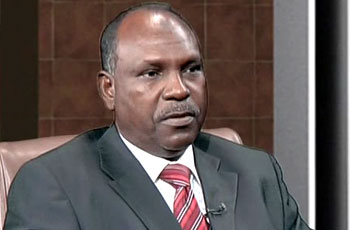Sudan says “external influences” on SPLM-N made negotiations fail
June 1, 2013 (KHARTOUM) – The Sudanese government attributed the collapse of the recent round of negotiations with the Sudan People Liberation Movement North (SPLM-N) in Ethiopia last month to “external influences” exerted on the rebel side.

“I can say that there are external influences which have made the rebel delegation lacking decision, flexibility, and will” Hamdi said, adding that the government delegation acted in accordance with the strategic objective and the methodology and ethics of negotiating for peace.
The SPLM-N on the other hand, he said, dealt in a tactical manner to maneuver and not to negotiable.
Last April, the first round of talks between the SPLM-N and the Sudanese government since 2011 in the Ethiopian capital Addis Ababa under the auspices of the African Union (AU) has adjourned without success in achieving any breakthrough.
Speaking on pro-government Ashorooq TV, Hamdi said that they sensed threats from SPLM-N Secretary General Yasser Arman in Addis Ababa that if they don’t reach an agreement, they will march all the way to Khartoum.
“We deal with threats seriously whether it is with the South [Sudan] or our internal institutions” he said.
He stated that the composition of the rebel delegation was centered around Arman saying that he blames those who authorized him to talk on their behalf”.
Hamdi stressed that the government delegation was flexible and that positive results could have been reached if the other party responded to it.
The Sudanese official went on to say that Khartoum has great confidence in the African mediation team led by Thabo Mbeki to lead the negotiations.
He explained that last month’s attack on Abu-Kershola by the rebels of the Sudan Revolutionary Front (SRF) was for the purpose of “psychological recovery” that came in the wake of signing of the implementation matrix with South Sudan which created confusion and fear within the rebel ranks.
Hamdi further said that target of the attack was to incite hatred within the components of society in South Kordofan that “will not add anything to them [rebels]”.
SRF is an alliance between Sudanese factions opposed to the government led by president Omer Hassan al-Bashir. It was declared on 12 November 2011, following several months of support by Darfuri rebel groups for the SPLM-N in its conflict with Khartoum.
The alliance brings together the two main factions of the Sudan Liberation Movement/Army, as well as the other major rebel group in Darfur, the Justice and Equality Movement, and the SPLM-N.
(ST)
